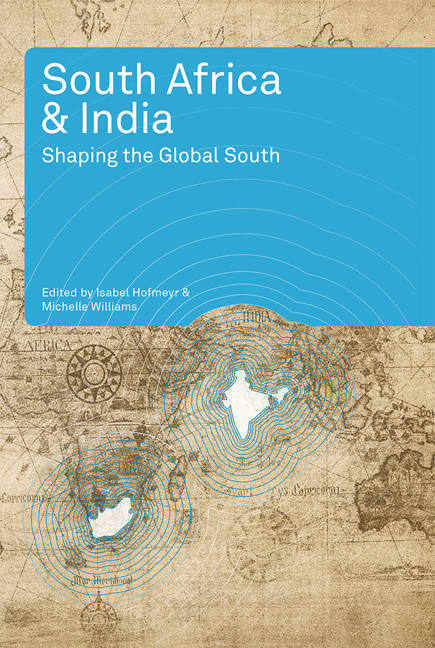Book contents
- Frontmatter
- Contents
- Acknowledgements
- Abbreviations and Acronyms
- Introduction
- Historical Connections
- Chapter 1 Gandhi's Printing Press: Indian Ocean Print Cultures and Cosmopolitanisms
- Chapter 2 Steamship Empire: Asian, African and British Sailors in the Merchant Marine c. 1880–1945
- Chapter 3 The Interlocking Worlds of the Anglo-Boer War in South Africa and India
- Chapter 4 The Disquieting of History: Portuguese (De)Colonisation and Goan Migration in the Indian Ocean
- Chapter 5 Monty … Meets Gandhi … Meets Mandela: The Dilemma of Non-violent Resisters in South Africa, 1940–60
- Socio-political Comparisons
- Conclusion
- Notes and References
- About the Authors
- Index
Chapter 4 - The Disquieting of History: Portuguese (De)Colonisation and Goan Migration in the Indian Ocean
from Historical Connections
Published online by Cambridge University Press: 21 April 2018
- Frontmatter
- Contents
- Acknowledgements
- Abbreviations and Acronyms
- Introduction
- Historical Connections
- Chapter 1 Gandhi's Printing Press: Indian Ocean Print Cultures and Cosmopolitanisms
- Chapter 2 Steamship Empire: Asian, African and British Sailors in the Merchant Marine c. 1880–1945
- Chapter 3 The Interlocking Worlds of the Anglo-Boer War in South Africa and India
- Chapter 4 The Disquieting of History: Portuguese (De)Colonisation and Goan Migration in the Indian Ocean
- Chapter 5 Monty … Meets Gandhi … Meets Mandela: The Dilemma of Non-violent Resisters in South Africa, 1940–60
- Socio-political Comparisons
- Conclusion
- Notes and References
- About the Authors
- Index
Summary
Introduction
The diaspora is a society in which the absent are a constant incitement to discourse about things moving. We call the diaspora ‘the society of the absent’ as a convenience and a theoretical position because in it, discourses of mobility appear as both cause and effect and are inseparable from diasporic life, saturating its internal social space (Ho, 2006:19).
The reason why I use the word ‘disquieting’ in this chapter has everything to do with the way in which the Goan (diasporic and elite) community of Maputo occupied a position of ‘disquiet’ – a state of uneasiness – within the Portuguese colonial hierarchy of Mozambique. Their patterns of migration consist of three distinct waves within the Indian Ocean region: from Portuguese India (Goa) to Mozambique in the 1920s in a search for economic betterment; next between the 1950s and 1960s, the period that foresaw the beginning of the end of Goa's decolonisation; and, lastly, emigration from Maputo as a direct response to Portuguese decolonisation in 1975. Each can be characterised as ‘disquieting’. Specifically, during all three phases of (potential) migration, these Goan elites occupied a precarious position – one viewed with uncertainty by both coloniser and colonised – within Mozambican society.
In the first phase (1920s), it was considered one's colonial duty as a ‘good’ Portuguese citizen to emigrate from Goa to help out in the ‘Africa cause’ and settle in Mozambique. This was largely a male phenomenon – many of those who emigrated were trained medical doctors – with very few Goan women enduring the journey, and one that allowed Goans to take full advantage of the instabilities of colonial rule and its ‘ambiguities of difference’ (Stoler & Cooper, 1997:4) such that they were ‘almost’ transformed from colonial subjects to colonial officers as a result of migration. The source of ‘disquiet’ here is the ease with which many of these former colonised subjects adapted to their new (relative) positions of power.
During the second phase (1950s–60s), many Goans chose emigration to another Portuguese colony in the face of Goa's imminent decolonisation and absorption into a culturally different Indian nation state; here, interestingly, migration was largely a female practice – many as the wives-to-be of Goan settlers in Mozambique. Migration in this case, in the face of decolonisation, can be understood as a ‘disquieting’ form of neocolonialism.
- Type
- Chapter
- Information
- South Africa and IndiaShaping the Global South, pp. 82 - 104Publisher: Wits University PressPrint publication year: 2011



